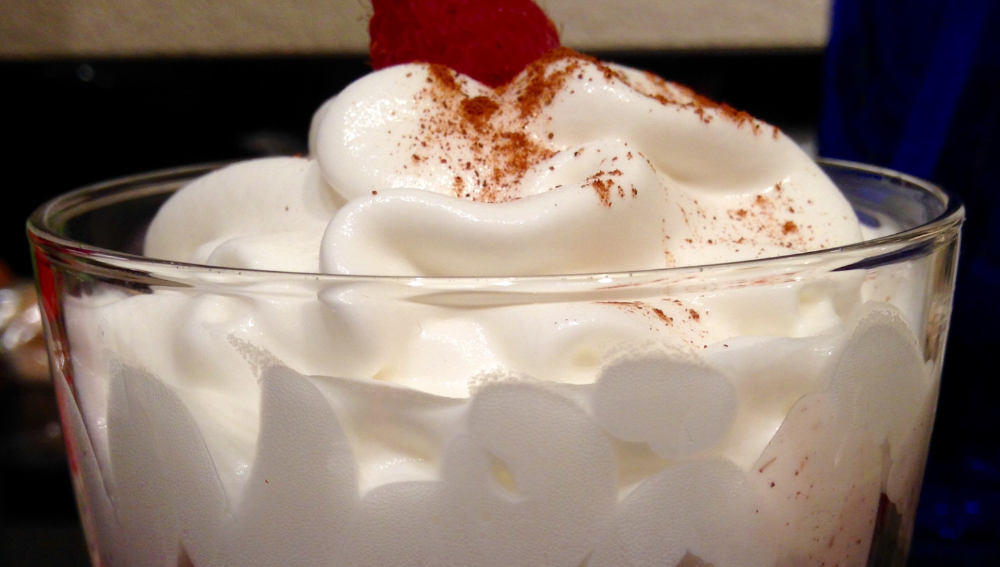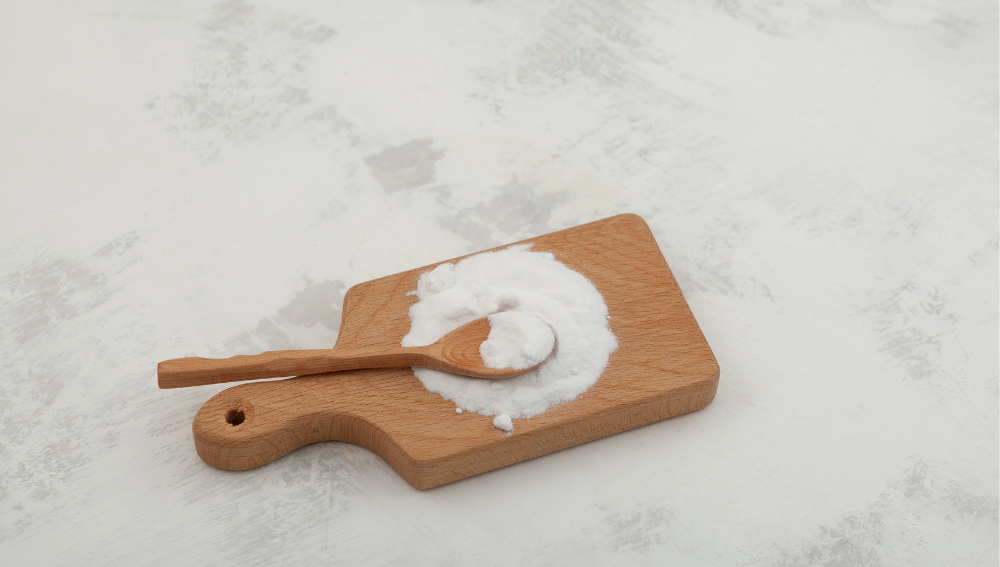As someone who enjoys cooking and baking, I know how frustrating it can be to find out that you’re missing a key ingredient for a recipe. One ingredient that is commonly used in fall-inspired dishes is apple cider.
However, not everyone has apple cider readily available or may not want to use it due to personal preferences or dietary restrictions. This is where apple cider substitutes come in handy.

Understanding the role of apple cider in cooking is essential when selecting a substitute. Apple cider is often used to add sweetness, acidity, and depth of flavor to a dish.
It is commonly used in recipes for marinades, sauces, glazes, and baked goods. When substituting apple cider, it’s important to choose a substitute that can mimic these characteristics while not overpowering the other ingredients in the dish.
In this article, I will explore some common apple cider substitutes and provide tips on selecting the right one for your recipe.
I will also discuss the health considerations of using substitutes and answer some frequently asked questions about apple cider substitutes.
By the end of this article, you’ll have a better understanding of how to substitute apple cider in your favorite recipes.
Key Takeaways
- Apple cider is commonly used in fall-inspired dishes to add sweetness, acidity, and depth of flavor.
- When substituting apple cider, it’s important to choose a substitute that can mimic these characteristics without overpowering other ingredients.
- Common apple cider substitutes include apple juice, lemon juice, and various types of vinegar. Health considerations should also be taken into account when selecting a substitute.
Understanding Apple Cider

As someone who loves cooking and baking, I know how important it is to have the right ingredients.
Apple cider is a popular ingredient in many recipes, and it’s important to understand what it is and how it can be substituted if you don’t have it on hand.
Apple cider is a sweet, unfiltered, non-alcoholic drink made from apples. It is typically made from a blend of apples, and the flavor can vary depending on the types of apples used.
It is different from apple juice, which is filtered and pasteurized, and has a longer shelf life.
Fermented apple cider, also known as hard cider, is an alcoholic beverage made from apples. It is made by fermenting apple juice with yeast, which converts the sugar in the juice into alcohol.
Hard cider can have a range of alcohol content, from less than 1% to over 8%.
If you are making a recipe that calls for apple cider, but you don’t have any on hand, there are several substitutes you can use.
For example, apple juice is a good substitute for apple cider in many recipes. Make sure to use unsweetened apple juice so that the flavor is not too different from the original recipe.
Another option is to use homemade apple cider vinegar. To make this, simply combine apples, water, and sugar in a large pot and simmer for several hours. Strain the mixture and let it ferment for several weeks until it turns into vinegar.
In summary, apple cider is a sweet, non-alcoholic drink made from apples, while hard cider is a fermented, alcoholic beverage made from apple juice. If you don’t have apple cider on hand, you can substitute it with apple juice or homemade apple cider vinegar.
The Role of Apple Cider in Cooking
As a versatile ingredient, apple cider is a popular choice for many recipes, sauces, marinades, and more. Its unique flavor profile adds a tangy sweetness that can elevate any dish.
In baking, apple cider can be used as a substitute for other liquids such as water, milk, or juice. It adds a subtle apple flavor to doughnuts, dumplings, and other pastries.
When cooking meat, apple cider can be used as a marinade to tenderize and add flavor. It pairs well with pork ribs and seafood such as shrimp or scallops.
For sauces, apple cider can be used as a base to create a tangy glaze for meat or vegetables. It can also be used to deglaze a pan and create a flavorful sauce.
Overall, apple cider is a versatile ingredient that can be used in a variety of ways to enhance the flavor of many dishes. However, if you are unable to find apple cider or prefer not to use it, there are several substitutes available such as apple juice or lemon juice.
Why Substitute Apple Cider
As someone who loves to cook and bake, I know how frustrating it can be to start a recipe only to realize that you’re missing a key ingredient.
Apple cider is a popular ingredient in many fall recipes, but it’s not always easy to find. Luckily, there are several substitutes and alternatives to apple cider that can be used in a pinch.
One reason why you might need to substitute apple cider is simply because you don’t have any on hand.
Depending on where you live, apple cider may not be available year-round or may be difficult to find. In this case, having a list of alternatives can be helpful.
Another reason why you might need to substitute apple cider is if you or someone you’re cooking for has an allergy or intolerance to apples.
While apple cider vinegar is not a direct substitute for apple cider, it can be used in some recipes to provide a similar flavor profile.
Finally, some people may choose to substitute apple cider for health reasons. While apple cider does have some health benefits, it’s also high in sugar and calories.
If you’re looking for a lower-calorie or lower-sugar alternative, there are several options to choose from.
No matter why you need to substitute apple cider, there are plenty of alternatives available. From apple juice to lemon juice to white grape juice, there are options to suit a variety of recipes and tastes.
By keeping a few key ingredients on hand, you can ensure that you’re always prepared to cook and bake your favorite fall recipes.
Common Apple Cider Substitutes
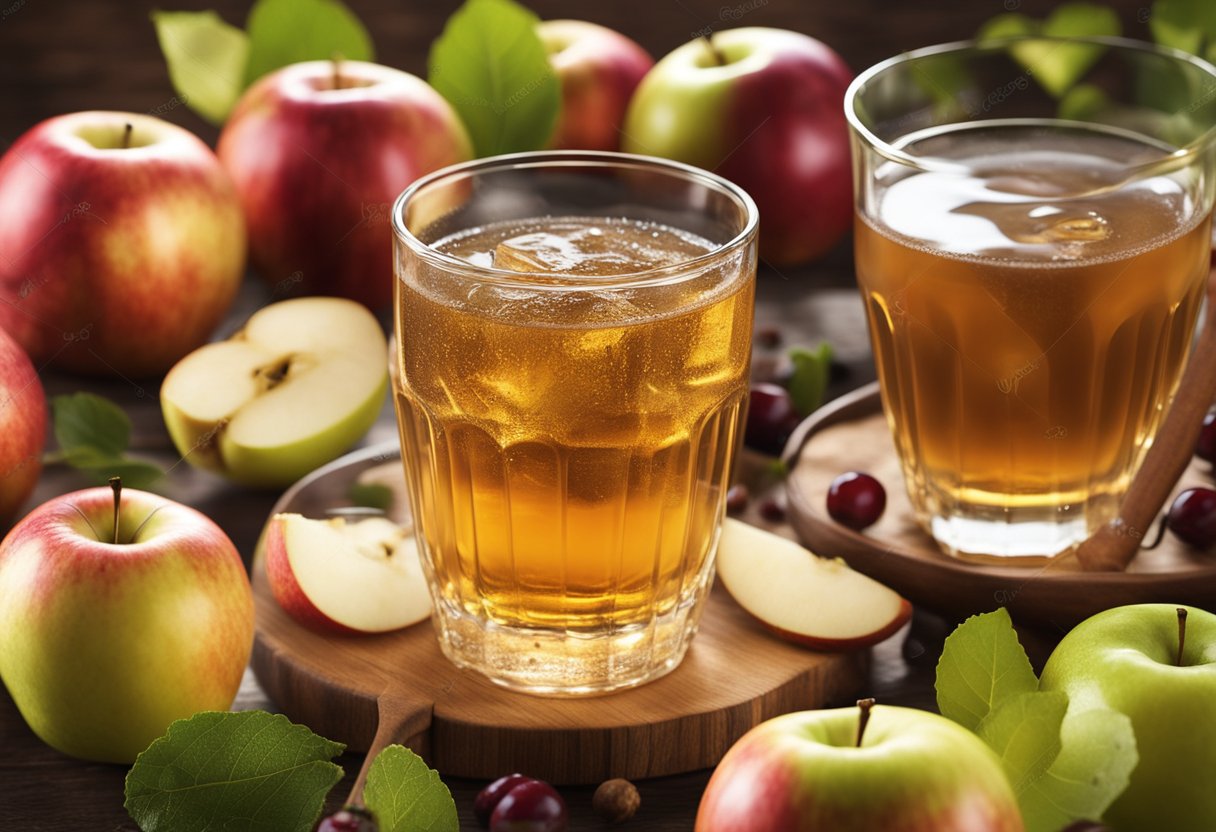
When it comes to cooking or baking, sometimes we find ourselves without apple cider in the house. But don’t worry, there are plenty of substitutes that can be used in place of apple cider.
Here are some of the most common substitutes that I use in my recipes:
- Apple Juice: Apple juice is the closest substitute for apple cider. It has a similar flavor and sweetness, but lacks the tartness of apple cider. Make sure to use unsweetened apple juice to avoid altering the recipe’s flavor.
- Lemon Juice: Lemon juice is another great substitute for apple cider. It has a high acidic content, which makes it a good replacement for the tartness of apple cider. However, it lacks the sweetness of apple cider, so you may need to add some sugar or honey to the recipe to balance it out.
- White Wine: White wine can be used as a substitute for apple cider in savory dishes. It has a similar acidity and can add a depth of flavor to the dish. However, it lacks the sweetness of apple cider, so you may need to add some sugar or honey to the recipe.
- Vinegars: Various types of vinegar can be used as a substitute for apple cider, including red wine vinegar, white wine vinegar, apple cider vinegar, rice wine vinegar, sherry vinegar, balsamic vinegar, and champagne vinegar. Each type of vinegar has its own unique flavor profile, so choose the one that best complements your recipe.
- Fruit Juices: Other fruit juices, such as orange juice or pineapple juice, can be used as a substitute for apple cider in recipes that call for a sweet and fruity flavor. However, keep in mind that these juices will alter the flavor of the recipe.
- Vinegar Substitutes: If you’re looking for a vinegar substitute, you can use lemon juice, lime juice, or white vinegar. Each of these substitutes has a similar acidity to vinegar, but with a slightly different flavor profile.
- Substitute for Apple Cider Vinegar: If you’re specifically looking for a substitute for apple cider vinegar, you can use white vinegar or lemon juice. White vinegar has a similar acidity to apple cider vinegar, but with a stronger flavor. Lemon juice has a similar tartness, but with a different flavor profile.
Overall, there are many different substitutes that can be used in place of apple cider. Choose the one that best complements your recipe and experiment to find the perfect flavor balance.
Selecting the Right Substitute
As a chef, I know that selecting the right substitute for apple cider can be crucial to the success of a recipe. When choosing a substitute, I consider the sweetness, acidity, and flavor profile of the recipe.
If a recipe requires sweetness, I recommend using apple juice as a substitute. It has a similar sweetness to apple cider and won’t dramatically change the flavor profile of the dish.
However, make sure to use unsweetened apple juice to avoid making the dish too sweet.
For a less acidic substitute, I suggest using lemon juice. Lemon juice has a tangy flavor and is less acidic than apple cider. It works perfectly because of its high acidic content just like apple cider, and its citrus burst brings similar freshness to your meal.
If a recipe calls for a dry substitute, I recommend using ale or hard cider. Ale has a similar flavor profile to apple cider and can be used as a substitute in savory dishes.
Hard cider, on the other hand, has a more natural and unprocessed taste, making it a great substitute for sweet dishes.
When selecting a substitute, it’s important to consider the overall flavor profile of the dish. For example, if a recipe calls for apple cider vinegar, I recommend using white wine vinegar instead. It has a similar tangy flavor but is less sweet than apple cider vinegar.
In summary, selecting the right apple cider substitute depends on the recipe’s sweetness, acidity, and flavor profile.
By considering these factors, you can choose a substitute that won’t dramatically change the dish’s taste and will still be delicious.
Using Substitutes in Recipes
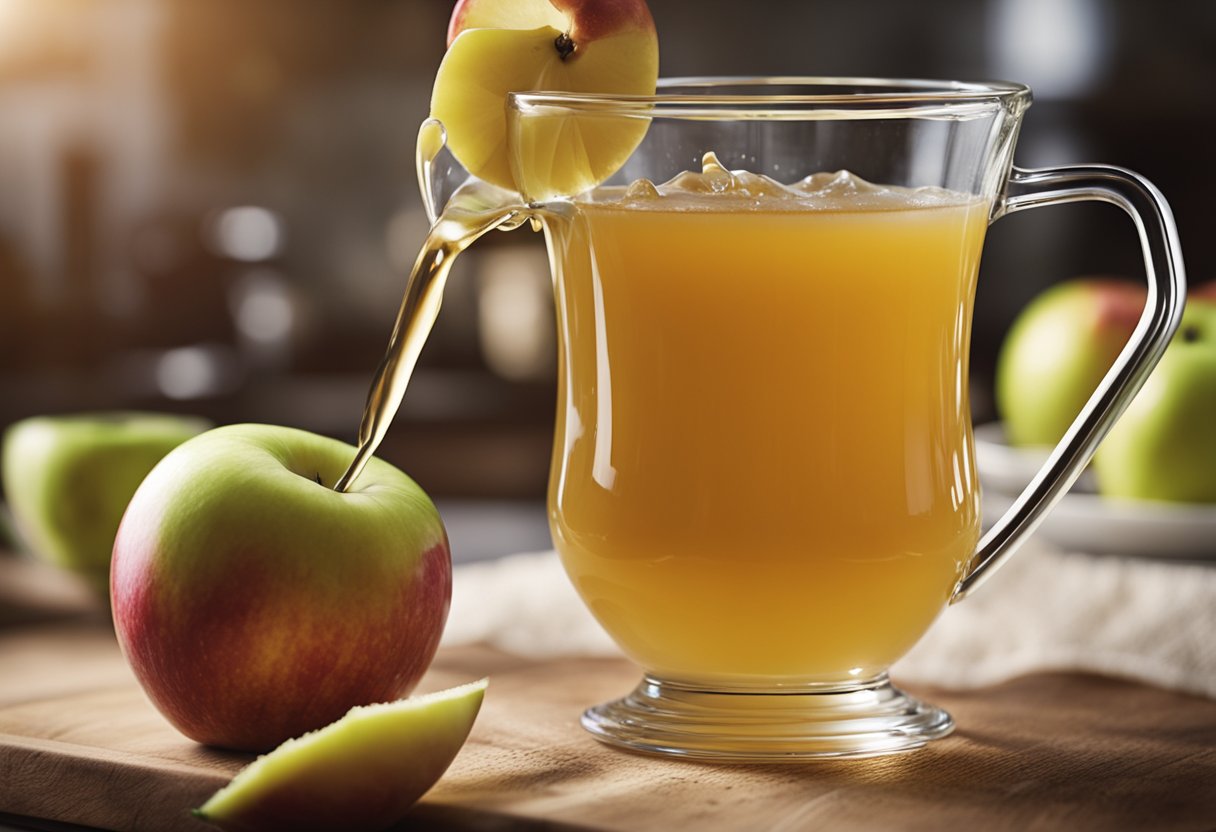
When it comes to cooking with apple cider substitutes, it’s important to keep in mind that not all substitutes are created equal.
Some substitutes work better in certain recipes than others. Here are some tips and guidelines to help you use apple cider substitutes in your recipes:
1. Consider the Recipe
When deciding which apple cider substitute to use, it’s important to consider the recipe you are making. For example, if you are making a salad dressing, you may want to use a sweeter substitute like apple juice or honey cider.
On the other hand, if you are pickling vegetables, you may want to use a more acidic substitute like apple cider vinegar.
2. Use the Same Amount
In most cases, you can use the same amount of apple cider substitute as you would apple cider in your recipe. For example, if your recipe calls for 1 cup of apple cider, you can use 1 cup of apple juice or apple cider vinegar instead.
3. Adjust for Flavor
While most apple cider substitutes have a similar taste to apple cider, some may be sweeter or more acidic than others. If you find that your recipe is too sweet or too acidic, you may need to adjust the amount of substitute you use to balance out the flavors.
4. Experiment with Citrus Zest
If you are looking for a way to add some extra flavor to your apple cider substitute, try adding some citrus zest. Lemon or orange zest can add a bright, fresh flavor to your recipe.
5. Use a Tablespoon of Vinegar for Pickling
If you are pickling vegetables, you can use a tablespoon of vinegar for every cup of water in your pickling solution. Apple cider vinegar is a great choice, but you can also use other types of vinegar if you prefer.
Using apple cider substitutes in your recipes can be a great way to add flavor and variety to your cooking. With these tips and guidelines, you can confidently substitute apple cider in your favorite recipes without sacrificing flavor or quality.
Health Considerations of Substitutes
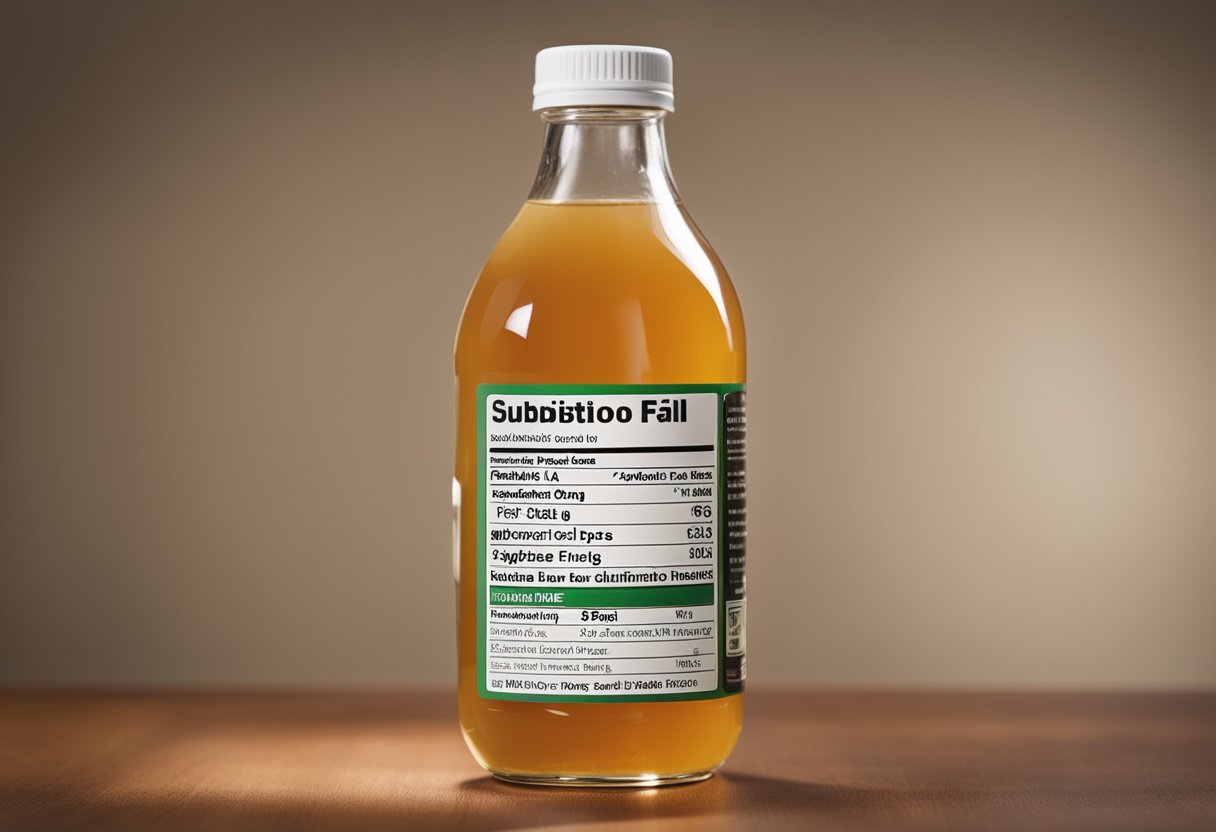
As I explore the world of apple cider substitutes, it’s important to consider the health benefits and potential drawbacks of each option.
One of the key health benefits of apple cider vinegar is its acetic acid content, which has been shown to have antimicrobial properties and potentially aid in weight loss.
However, not all apple cider substitutes contain acetic acid, so it’s important to consider other health benefits and drawbacks.
For example, some apple cider substitutes like lemon juice and tea may have alkalizing effects on the body due to their pH levels, which can potentially help with digestion and overall health.
On the other hand, some substitutes like white wine vinegar may have higher levels of cholesterol, which could be a concern for those with high cholesterol levels.
It’s also important to consider the overall nutritional value of each substitute. For example, while apple juice may be a good substitute for apple cider in terms of flavor, it may not have the same nutritional benefits as whole apples, which are high in fiber and other nutrients.
Overall, when considering apple cider substitutes, it’s important to weigh the potential health benefits and drawbacks of each option.
By doing so, you can make an informed decision that best fits your individual health needs and preferences.
Frequently Asked Questions
What can I use instead of apple cider vinegar?
If you need a substitute for apple cider vinegar, you can use white vinegar, red wine vinegar, rice vinegar, or balsamic vinegar. Each of these types of vinegar has a different flavor profile, so choose one that complements your recipe.
What is a good substitute for apple cider in cocktails?
If you’re making a cocktail that calls for apple cider, you can use apple juice or hard cider as a substitute. Apple juice is a good substitute if you want a non-alcoholic option, while hard cider will add a boozy kick to your cocktail.
What is a good substitute for dry cider?
If you don’t have dry cider on hand, you can use white wine or apple juice as a substitute. White wine will add a dry, crisp flavor to your recipe, while apple juice will add a sweet, fruity flavor.
What are some alternatives to apple cider?
If you’re looking for alternatives to apple cider, you can try pear cider, cranberry juice, or pomegranate juice. Each of these options has a unique flavor profile that can add depth and complexity to your recipe.
What can I use instead of applesauce?
If you need a substitute for applesauce, you can use mashed bananas, pumpkin puree, or Greek yogurt. Each of these options will add moisture and flavor to your recipe, just like applesauce.
Can apple juice be used as a substitute for sparkling apple cider?
No, apple juice cannot be used as a substitute for sparkling apple cider. Sparkling apple cider has carbonation, which gives it a bubbly, effervescent texture.
If you don’t have sparkling apple cider, you can try adding club soda or seltzer water to regular apple cider to give it a fizzy kick.





